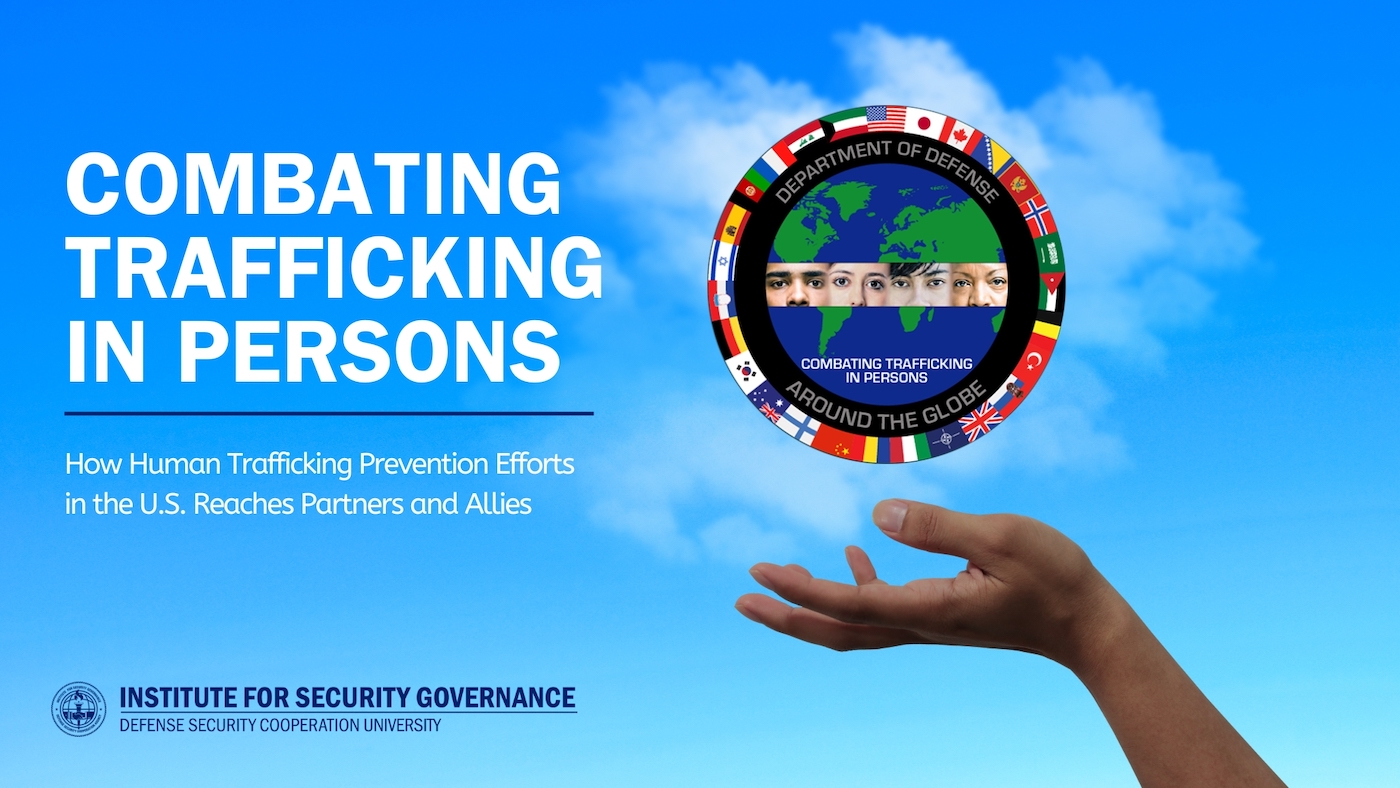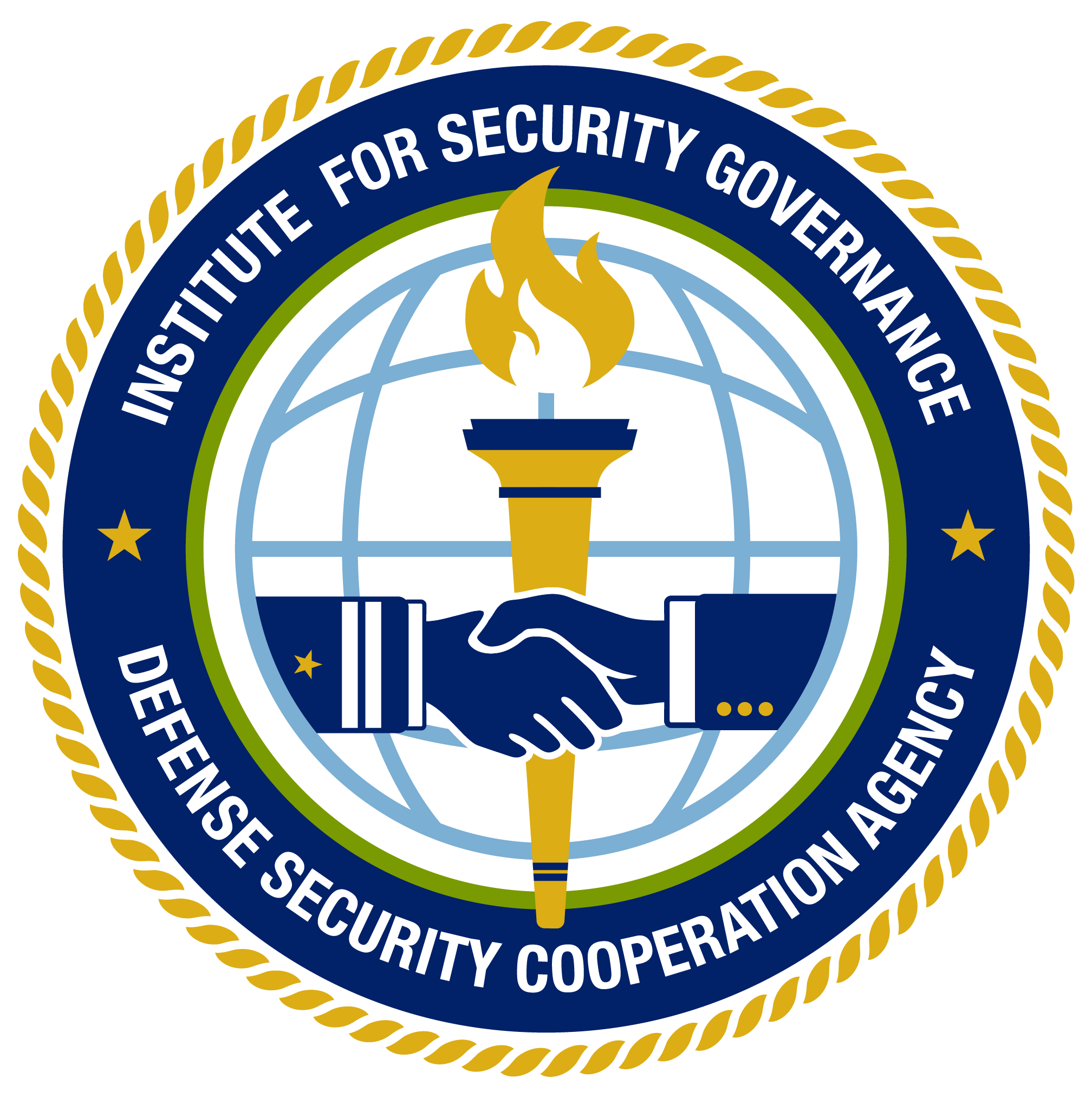HOW HUMAN TRAFFICKING PREVENTION EFFORTS IN THE U.S. REACHES PARTNERS AND ALLIES - Defense Security Cooperation University

Jan 24, 2024
HOW HUMAN TRAFFICKING PREVENTION EFFORTS IN THE U.S. REACHES PARTNERS AND ALLIES
In December 2023, President Joseph Biden designated January as National Human Trafficking Prevention Month, encouraging Americans to recognize signs of trafficking in persons (TIP). With millions affected globally, the U.S. Defense Department is actively combating human trafficking through its Combating Trafficking in Persons (CTIP) Program.
President Biden emphasized the severity of the issue, stating that TIP poses a threat to global security, public safety, and human dignity. He highlighted the staggering reality that “More than 27 million people around the world endure the abhorrent abuse of human trafficking and forced labor,” and reiterated the nation's commitment to end these crimes.
“More than 27 million people around the world endure the abhorrent abuse of human trafficking and forced labor.”
The Institute for Security Governance (ISG) aligns with this commitment through its Resident and Mobile Education courses. Designed to cultivate individual understanding of complex issues and foster peer-to-peer learning, these courses are crafted to provide military and civilian officials with unique education and professional development programs that support Security Cooperation and Institutional Capacity Building (ICB). ISG’s adaptable, scalable, and tailored educational programs are offered across a wide array of functional areas to address U.S. and partner nation security objectives, including the prevention of TIP.
In Fiscal Year 2023 alone, ISG integrated TIP education, training, and practical exercises into 17 Resident, Bilateral Mobile, and Multilateral Mobile Education and Training Courses for 1,285 participants hailing from 58 countries, including both international military and civilian foreign national participants.
ISG’s Conflict, Terrorism, and Protection (CTP) program is one of the functional areas that specifically addresses TIP. Its courses focus on the causes and triggers of conflict, and the full spectrum of conflict management from prevention to various types of warfare, to conflict resolution and governmental/societal recovery.
For example, TIP is given particular emphasis in the CTP Migration and Forced Displacement course, which seeks to assist those responsible for the complex state security and humanitarian challenges posed by irregular migration rooted in conflict, human rights violations, and persecution to overcome these challenges. Focusing on how to prepare for, respond to, and work together in the management of irregular migration, the course explores comprehensive approaches, capabilities, and policies for the management and treatment of migrants, particularly refugees, asylum seekers, and human trafficking survivors.
Another functional area that specifically addresses TIP is ISG’s Peacekeeping and Exercises (PKX) program, which supports the U.S. State Department’s Global Peacekeeping Operations Initiative (GPOI), PKX annually executed dozens of multilateral METS with the 47 GPOI partner nations and other UN contributor nations, to include most of the top contributors to UN Peacekeeping Operations (PKO) worldwide.
By their nature, many peacekeeping operational environments are characterized by the breakdown of national institutions and services making them natural vectors for TIP activities and violations. As a result, the core function of most uniformed peacekeepers is to provide security and protect vulnerable civilian populations. This is detailed in the UN Protection of Civilians mandate, which serves as the central pillar of the UN PKO mission mandates in missions characterized by vulnerable civilian populations. By establishing security and protecting vulnerable populations, uniformed peacekeepers provide the opportunity for civilian UN components and NGO partners to support the re-establishing of the local governance institutions that form the backbone of any long term CTIP efforts.
As a result, all PKX courses cover significant countering TIP topics in course modules such as, Conflict Related Sexual Violence, Child Soldiers, Counter Sexual Exploitation and Abuse (SEA), Child Protection, Protection of Civilians and Women Peace and Security, among others. Courses that feature extensive CTIP modules and exercises include the United Nations Peacekeeping Operations Contingent Commanders Course, United Nations Staff Officers Course, United Nations Peacekeeping Engagement Team Training, United Nations Peacekeeping Intelligence Operations, Protection of Civilians in Peacekeeping Operations, Women, Peace, & Security in Peacekeeping Operations, United Nations Military Observers Course, and the United Nations Civil-Military Coordination Officers Course.
ISG Faculty Senior Associate and CTP Functional Area Lead, Ms. Eva Lanot, notes that trafficking in persons is a crime of exploitation against the individual that violates their inalienable human rights, as well as a form of criminal conduct. From domestic servitude to sexual slavery and forced marriages to the recruitment of children by armed groups, trafficking in persons is widely recognized to be the world’s fastest growing criminal enterprise. Migrants, particularly the nearly 110 million forcibly displaced persons (UNHCR, 2022 figures) and minors, are acutely vulnerable to traffickers and crisis situations only amplify the likelihood of exploitation and abuse. As duty bearers, states and their security forces are obliged to respect, protect, and promote human rights of individuals regardless of citizenship. “At ISG, we recognize, support, and promote the capacity of our partner and allied nations to do just that via our educational and advising programming.”
“At ISG, we recognize, support, and promote the capacity of our partner and allied nations to do just that via our educational and advising programming.”
To learn more about the courses offered by CTP and the rest of the functional areas spanning, Security Governance & Civil Military Relations; Maritime Security; Emergency Management & Resilience; Peacekeeping & Exercises; Cyber Capability; International Defense Acquisition Resource Management; and Logistics Capability Building, visit ISG’s Schoolhouse Hub and Course Catalog.

